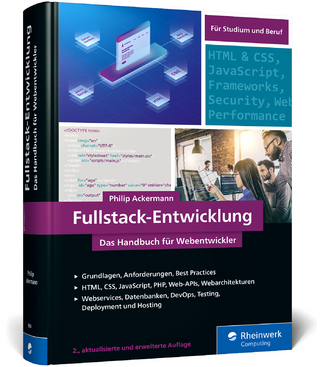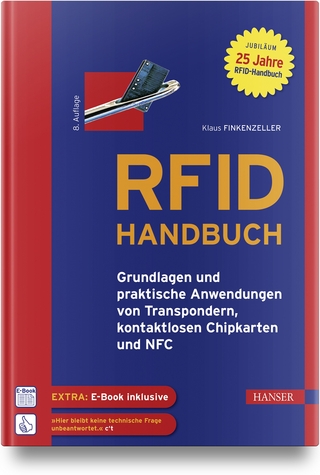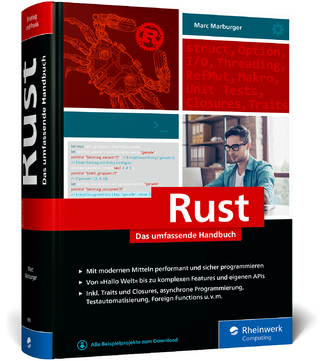
Principles of Verilog PLI
Springer (Verlag)
978-0-7923-8477-9 (ISBN)
Principles of Verilog PLI is written for the professional engineer who uses Verilog for ASIC design and verification.
Principles of Verilog PLI will be also of interest to students who are learning Verilog.
Principles of Verilog PLI is a `how to do' text on Verilog Programming Language Interface. The primary focus of the book is on how to use PLI for problem solving. Both PLI 1.0 and PLI 2.0 are covered. Particular emphasis has been put on adopting a generic step-by-step approach to create a fully functional PLI code. Numerous examples were carefully selected so that a variety of problems can be solved through ther use. A separate chapter on Bus Functional Model (BFM), one of the most widely used commercial applications of PLI, is included.
Principles of Verilog PLI is written for the professional engineer who uses Verilog for ASIC design and verification.
Principles of Verilog PLI will be also of interest to students who are learning Verilog.
PLI-a Quick Tour.- 1. What is a PLI?.- 2. Where Can I Use PLI ?.- 3. Four Quick Steps for Writing a PLI Routine.- 4. Compiling and Linking a PLI Routine.- 5. Results.- 6. Self Check.- 7. Getting the Simulation Time.- 8. Modifying the Value of a Register.- 9. Running Again.- 10. Self Check.- 11. Summary.- Fundamentals of Verilog PLI.- 1. Introduction.- 2. How PLI Works.- 3. Program Structure of a PLI Routine.- 4. Parameters to the Constituent Functions in a PLI Routine.- 5. Integrating the PLI Routine Into the Simulator.- 6. Linking the PLI Routine With the Simulator.- 7. Different Types of Library Functions.- 8. Summary.- Utility Routines in PLI1.0.- 1. What are Utility Routines ?.- 2. Using Utility Routines.- 3. Modifying the Value of a Design Object.- 4. Handling Data Types in Utility Routines.- 5. Classification of Utility Routines.- 6. Using Instance Pointers in Utility Routines.- 7. Limitations of Utility Routines.- 8. Summary.- Access Routines in PLI1.0.- 1. What are Access Routines ?.- 2. Using Access Routines in a User Function.- 3. Handle.- 4. Classifications of Access Routines.- 5. Handle Routines.- 5.4 Getting a handle to module path, datapath and related objects.- 6. Fetch Routines.- 7. Modify Routines.- 8. Value Change Link (VCL) Routines.- 9. Next Routines.- 10. Miscellaneous Routines.- 11. Using Access Routines With VCS.- 12. Summary.- Putting PLI to Work.- 1. Problem 1: Getting Information from the Environment.- 2. Problem 2: Creating a Test Bench.- 3. Problem 3: A Simple Value Change Dump Tool.- 4. Problem 4: a Coverage Tool for Gate Level Netlist.- 5. Problem 5: Communicating Between Verilog Processes.- 6. Problem 6: Virtual Memory Management.- 7. Problem 7: Assigning a Register Value from a File.- 8. Summary.- Writing Bus Functional Model.- 1. What isa Bus Functional Model?.- 2. Why Use a BFM ?.- 3. General Methodology for Writing a BFM.- 4. Writing a Bus Functional Model — a Crossbar Switch.- 5. Writing a Bus Functional Model — a Rudimentary Processor.- 6. Summary.- Verilog Procedural Interface (PLI2.0).- 1. Why Another Interface ?.- 2. Anatomy of a PLI Routine Using VPI.- 3. Data Access Methodology.- 4. Design Objects — Properties and Relationships.- Library Functions in Vpi.- 1. Different Classes of VPI Functions.- 2. Functions in VPI.- 3. Using VPI: an X-Detector.- 4. Using VPI: Displaying Drivers.- 5. Future Direction.- 6. Summary.
| Erscheint lt. Verlag | 31.3.1999 |
|---|---|
| Zusatzinfo | XXVIII, 372 p. |
| Verlagsort | Dordrecht |
| Sprache | englisch |
| Maße | 155 x 235 mm |
| Themenwelt | Mathematik / Informatik ► Informatik ► Programmiersprachen / -werkzeuge |
| Mathematik / Informatik ► Informatik ► Theorie / Studium | |
| Technik ► Elektrotechnik / Energietechnik | |
| ISBN-10 | 0-7923-8477-6 / 0792384776 |
| ISBN-13 | 978-0-7923-8477-9 / 9780792384779 |
| Zustand | Neuware |
| Haben Sie eine Frage zum Produkt? |
aus dem Bereich


